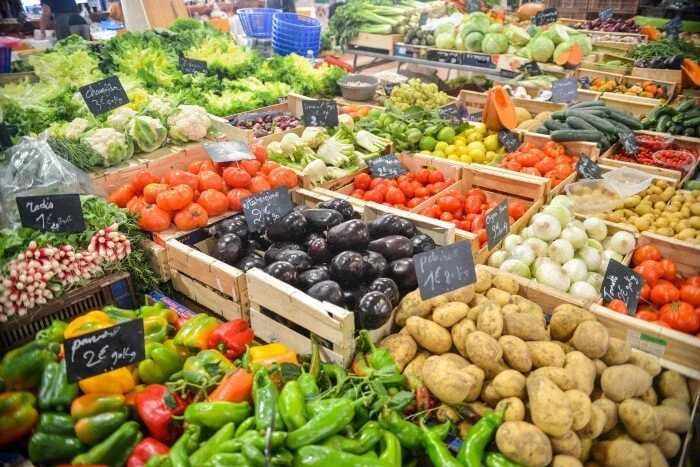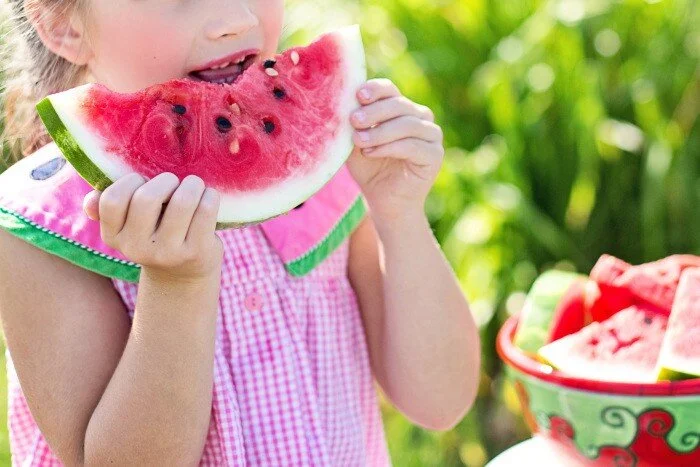
Welcome to iGrow News, Your Source for the World of Indoor Vertical Farming
3 Questions For Mindful Eating
Free yourself from “relating” with food — it’s not a person, and you don’t owe it anything. Instead of judging past decisions, let’s take a minute to focus on what we really have control over — our next meal.
By Derek Brainard
Jun 6, 2017
Someone Needs to Say It
Food is not good or evil, nor do your decisions about what to eat translate into you being a good, bad, smart, or stupid person. There is no magical transitive power that food possesses that indicates your personality or your character. Free yourself from “relating” with food — it’s not a person, and you don’t owe it anything. Instead of judging past decisions, let’s take a minute to focus on what we really have control over — our next meal.
Mindful Eating
Every day we’re inundated with a new diet — a new way of eating that will “revolutionize” our approach to nutrition, help us lose weight, and get back in shape.
The resulting process has become predictable, and almost cliche — we get motivated, decide it’s time to make a change fueled by this new information, jump in for a few weeks or months, then slowly regress back to habits that have been instilled for the first several decades of our lives, eventually wiping out any progress that was made in the first place.
In fact, researchers from UCLA have found that people on diets typically lose five to ten percent of their starting weight in the first six months, only to have at least one-third to two-thirds of people on diets regain more weight than they lost within four or five years (American Psychologist).
Not surprising, right? Our own collective experience probably supports that claim, leaving us with one big, perpetual question:
How am I supposed to eat?
It is exactly this mindfulness, this quest for finding what works for you, that will eventually lead you to a successful personal nutrition plan. Work with a licensed pro to hone your plan, and as always — consult your doctor when making a change that may impact vital health markers (we hope).
With mindfulness at the center of our conversation, here are three questions to ask yourself when it comes to what you decide to put in your mouth, regardless of what diet or lifestyle you choose.
Why Am I Eating?
Sounds simple enough, but the lack of this question may be one of the greatest causes of our current obesity epidemic in America. As of last year, 38% of adults and 17% of teenagers were considered “obese” — with the operational definition being a Body Mass Index of over 30 (Centers of Disease Control and Prevention).
Starting with why may be the single most powerful filter we as humans can place on our actions. Asking why we engage in any behavior is a step that is often taken for granted, but can yield amazing, behavior-changing results.
The top ways we omnivores tend to approach food consumption come in the following flavors:
Emotionally — This may be the primary way we make food decisions in our daily lives, whether we know it or not. Eating a cookie or having a beer because we “had a hard day” makes no earthly logical sense, but we do it anyway because of the temporary “lift” we may get from a sugar high or a buzz. In a more communal sense, food is typically at the center of celebration. For many families, it would be considered sacrilege to forgo the cake at a birthday in exchange for fruit. Most would never question the alleged benefits of this ritual. As a matter of fact, even suggesting the change might actually incite anger.
Passively — Sometimes, we simply give very little thought at all to what we are putting in our bodies. Mindless eating or snacking falls under this category, and is definitely a culprit of pounds and inches being added to our waistlines each year. Usually happens at a work-desk or during the “witching hours” (anytime after 8 pm).
Addictively — When we legitimately lose control of our ability to make food or drink decisions for ourselves, it may be time to to seek help and engage with one of the many community organizations that exist to help us get back to health.
Culturally — Many cultural traditions are passed down from generation to generation within families — some good, and some potentially damaging. It can be difficult to buck a trend, but when it comes to your health — your body is your temple, and supersedes someone else’s desire to see you eat some fried goodies.
Medicinally — Hippocrates, who many call the father of medicine, said:
“Let food be thy medicine and medicine be thy food.”
We may have strayed from this mentality for some time, but thankfully medical professionals are now seeing the benefits associated with a return to a “food as medicine” practice.
OK, so if it’s given that we generally eat because we’re hungry (and there can be false indicators that the body sends in this regard that are outside of the scope of this article), then take some time to ask yourself — how do I typically approach my food-decisions each day? Emotionally, passively, culturally, medicinally, or a mixture?
Simply asking “why am I eating this?” before we ingest may help us determine whether we’re eating for health or for some other reason.
Where Did This Come From?
Asking where our food comes from can also be another great filter for a mindful eater. The movement to locally-sourced, non-modified food is undeniable. A leader in the movement, author Michael Pollan captures the essence of the growing prescription best with his mantra: “Eat food, not too much, mostly plants.”
A number of well-done documentaries exist on this subject, like “Food, Inc.,” “Fresh,” “What’s With Wheat?”, and “In Defense of Food.”
Common themes exist in many of these films, and have beared themselves out in my own experience as well.
Common Themes in Support of Local Food-Sourcing
In our effort to scale food operations (on a massive level), we humans generally make a bigger mess of things, and sometimes even diminish or remove the nutritional values of the many of the foods we are attempting to nourish our society with in the first place.
Knowing where our food comes from is valuable primarily because it allows us to know definitively where it did not come from (e.g. feed lots, chicken factories, chemical-laden crop and wheat fields, etc…).
Look for opportunities in your community to shop at farmers markets or buy directly from the farm, bring the kids out to a sheep-shearing festival, buy from a local butcher, or participate in a Community Supported Agriculture (CSA) program. Local, organic and humane farmers need our support to give us the food our bodies need. We vote with our dollars.
How Is This Nourishing My Body?
The third question for mindful eating is another simple, yet overlooked question. Let’s frame this up in the following context:
Just like financial decisions have a positive or negative net effect on our balance sheet, food decisions can have a positive or negative net effect on our health.
Simple concept — exceedingly difficult application.
What I have found in my reading, and my experience as a coach and as an avid foodie, is that different people react differently to the same foods, and that what works for one person won’t necessarily work for another (shocking, I know).
In other words, outside of generally accepted nutrition principles (like Pollan’s mantra), what nourishes one may harm another, especially for those with allergies.
Simply asking “how is this nourishing my body” is a great way to acknowledge and celebrate the benefits of your food-choices, or to recognize that a divergence from the nutrition plan may not have a nourishing effect, but that it is temporary and done for another reason (cultural or celebratory primarily).
Take action in your own life by becoming a student of health and nutrition. This stuff matters, and your successful implementation of a personalized nutrition plan may only be a few steps away. Read books. Talk to local pros, health coaches, experts, and trainers. Listen to podcasts and stay motivated daily. Go back and read the first paragraph of this article — every day if you have to.
Continuously ask yourself the three questions for a life packed with delicious and mindful eating.
For a list of whole-food ideas for your next shopping trip, check out the Level 1 Food List.






